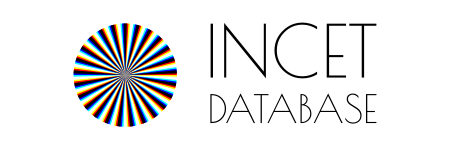 Web Content Display
Web Content Display
 Web Content Display
Web Content Display
The goal of the Interdisciplinary Centre for Ethics (INCET) at the Jagiellonian University is to encourage and support research activities in philosophy and ethics, in particular research on the classic bioethical dilemmas (e.g. reproductive or end-of-life decisions, organ transplantation, clinical decision making) and on topics that emerge from recent technological, social, and scientific developments (e.g. regulating scientific research, genetic engineering, human enhancement, new healthcare and reproductive technologies, evidence based medicine, preventive medicine, big data, artificial intelligence, algorithmic decision-making). See more information about INCET
 Web Content Display
Web Content Display
News
Funding opportunity – Marie Skłodowska-Curie Postdoctoral Fellowships
Marie Skłodowska-Curie Actions (MSCA) offer an opportunity to fund applicants’ own research fellowships at the Interdisciplinary Centre for Ethics (INCET) - a research centre within the Faculty of Philosophy of the Jagiellonian University in Kraków. Expressions of interest should be submitted by 8 May 2024.
4-year PhD position at Jagiellonian University in Kraków in the NCN Preludium Bis project 'Emerging reproductive technologies meet philosophy: the non-identity problem, harm, and counterfactuals' led by Tomasz Żuradzki
Soon we begin new research project funded by Poland's National Science Centre (Narodowe Centrum Nauki) entitled "Emerging reproductive technologies meet philosophy: the non-identity problem, harm, and counterfactuals" as part of the Preludium BIS 4 call, number: 2022/47/O/HS1/02794, head of the project: dr hab. Tomasz Żuradzki, prof. UJ. The deadline for applications is 25 May 2024.
seminar
25 of April 2024 - Bartosz Janik - Rules and interpretation: behavioral account
We have the pleasure to invite you to another research seminar. Bartosz Janik is going to give a talk: "Rules and interpretation: behavioral account”. The seminar will take place on the 25th of April exceptionally at 3:30 p.m. in the room 25 on Grodzka Street and via MS Teams.
seminar
18 of April 2024 – Tomasz Krawczyk – Meaningful inclusion? Influence of Research Institutions on Epistemic Injustice in Public Involvement
We have the pleasure to invite you to another research seminar. Tomasz Krawczyk is going to give a talk: "Meaningful inclusion?
Influence of Research Institutions on Epistemic Injustice in Public Involvement”. The seminar will take place on the 18th of April at 5:30 p.m. in the room 25 on Grodzka Street and via MS Teams.
seminar
11th of April 2024 — Jakub Petri — Communities and Artistic Participation in Hybrid Environment
Interdisciplinary Centre for Ethics (INCET) UJ invites for its next research seminar enitled: "Communities and Artistic Participation in Hybrid Environment" by Jakub Petri. The meeting takes place on the 11th of April 2024 r. at 5.00 p.m., Grodzka 52, room 25 and via Teams platform.
seminar
4th of April 2024 — Edmond Awad — Online Serious Games as a Tool to Study Value Disagreement
Interdisciplinary Centre for Ethics (INCET) UJ invites for its next research seminar enitled: "Online Serious Games as a Tool to Study Value Disagreement" by Edmond Awad (University of Oxford). The meeting takes place on the 4th of April 2024 r. at 5.30 p.m., Grodzka 52, room 25 and via Teams platform.
seminar
7th of March 2024 – Maciej Próchnicki – The Robin Hood effect: The effect of income on perceived fairness of mutual compensation in tort damages
Interdisciplinary Centre for Ethics UJ (INCET) invites for its next research seminar entitled "The Robin Hood effect: The effect of income on perceived fairness of mutual compensation in tort damages" by Maciej Próchnicki.
The meeting takes place on the 7th of March 2024 r. 5:30, Grodzkiej 52, room 25, Kraków and via Teams
 Web Content Display
Web Content Display
Recent publications
A Data-Driven Argument in Bioethics: Why Theologically Grounded Concepts May Not Provide the Necessary Intellectual Resources to Discuss Inequality and Injustice in Healthcare Contexts - a new publication by Tomasz Żuradzki and Karolina Wiśniowska
In this paper, we use an innovative, empirical, and–as yet–rarely applied method in bioethics, namely corpus analysis. By demonstrating the ambiguity of the concept of dignity discernible when analyzing its use in normative contexts, our work is a novel contribution to the debates among the historians of ideas about conceptual identity and conceptual drift.
Etyczne aspekty "obrzezania" - a new article by Karolina Wiśniowska
Abstract: Female genital mutilation includes procedures which remove or cause injury to some or all women’s external genital organs. There are a lot of medical risks involved - nevertheless, in some societies it is mainstream practice, carried out mostly on girls younger then fifteen years of age. In this paper, it is considered if it would be acceptable to make compromise in the case of female genital mutilation in the form of so-called Seattle compromise.
Helping when the desire is low: Expectancy as a booster - a new publication of The experimental philosophy lab
One might assume that the desire to help (here described as Want) is the essential driver of helping declarations and/or behaviors. However, even if desire to help (Want) is low, intention to help may still occur if the expectancy regarding the perceived effectiveness of helping is high. We tested these predictions in a set of three experimental studies.
Objective consequentialism and the plurality of chances - a new article by Leszek Wroński
I claim that objective consequentialism (OC) faces a problem stemming from the existence in some situations of a plurality of chances relevant to the outcomes of an agent’s acts. I suggest that this phenomenon bears structural resemblance to the well-known Reference Class problem. I outline a few ways in which one could attempt to deal with the issue, suggesting that it is the higher-level chance that should be employed by OC.
Agent‐based modelling for SARS‐CoV‐2 epidemic prediction and intervention assessment: A methodological appraisal - a new article by Mariusz Maziarz and Martin Zach
Our purpose is to assess epidemiological agent‐based models—or ABMs—of the SARS‐CoV‐2 pandemic methodologically. The rapid spread of the outbreak requires fast‐paced decision‐making regarding mitigation measures.
Non-Epistemological Values in Collaborative Research in Neuroscience: The Case of Alleged Differences Between Human Populations - a new peer commentary by Joanna K. Malinowska and Tomasz Żuradzki in AJOB Neuroscience
What constitutes bias?; how biases may be embedded in the selection of research programs?; is it possible to conduct completely unbiased research? Joanna K. Malinowska and Tomasz Żuradzki try to notice possible answers to these questions in their commentary "Non-Epistemological Values in Collaborative Research in Neuroscience: The Case of Alleged Differences Between Human Populations".



